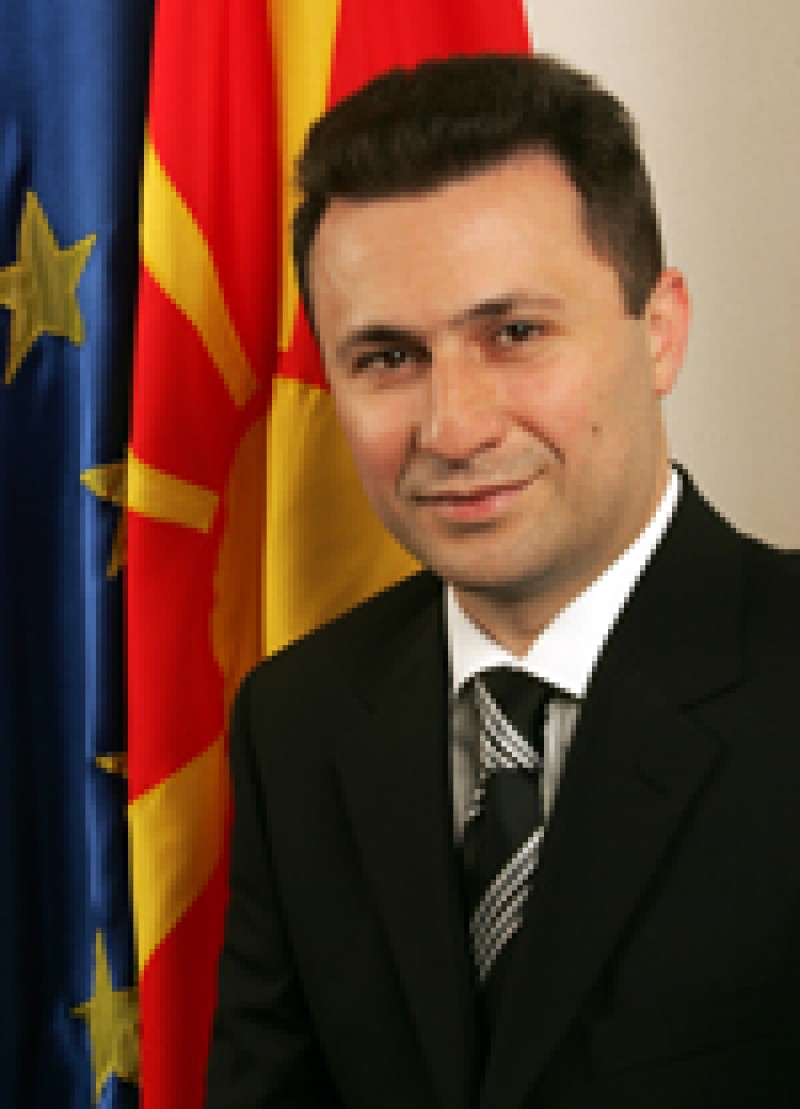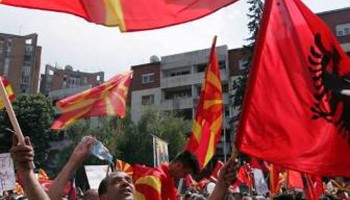The law change will restore the president's right to pardon people convicted of electoral crimes, pedophilia, drug production and trafficking, and crimes against humanity. Parliament removed that right in January 2009.
The controversial decision was struck behind closed doors on Wednesday following a night of protests in Macedonia's capital of Skopje. Critics of giving the president the right gathered to hold a protest march Tuesday evening, but were barred from protesting in front of the court building. Government supporters set up tents as part of a counter protest, standing "in defense of the judges", according to BalkanInsight.
The two opposing groups mirrored the events from May last year, when anti-government protesters and government supporters set up camp only a couple of streets apart. At that time, anti-government protesters were demanding that Gruevski and several members of his VMRO-DPMNE government resign. Government supporters wanted the resignation of Zoran Zaev, leader of the opposing SDSM party.
The May 2015 anti-government protests erupted after Zaev released a set of recordings. He claimed Gruevski and others had ordered the illegal wiretapping of more than 20,000 Macedonian citizens – including members of Gruevski's own cabinet.
The recordings included voices, some allegedly belonging to members of Gruevski's cabinet, discussing efforts to influence the judiciary, nepotism, electoral fraud, abuse of power, illegal government spending, politically motivated arrests and attempting to cover-up a murder.
Gruevski maintained that the tapes were doctored, and created by the opposition in order to destabilize Macedonia and mount a coup with the help of an unnamed foreign intelligence agency.
The political crisis would calm down following the June-July 2015 Przino agreement- a European Union brokered deal between Macedonia's major political parties. It included parliamentary elections to take place in April this year, the resignation of Gruevski to take place at least 100 days before these elections, and the establishment of an independent Special Prosecutor's office that would have full authority to investigate the wiretapping allegations.
Gruevski submitted his resignation on January 15 this year, and last month the snap elections, which were first to take place on April 24, were moved to take place on June 5.
On February 12, the Special Prosecutor's office accused a number of high-ranking officials of violating the election law, bribery, destroying electoral material and misuse of funds during election campaigns.
Among them are General Secretary of the Government Kiril Bozinovski, as well as ex-Interior Minister Gordana Jankulovska and ex-Transport and Communications Minister Mile Janakieski who both resigned during the May 2015 protests. All three were prominent members of Gruevski's government and the VMRO-DPMNE.
According to the SDSM, the Wednesday constitutional court decision is a result of the VMRO-DPMNE influencing the judiciary.
Meanwhile, the VMRO-DPMNE accuses the SDSM of being inconsistent, saying that some members of the party opposed the amendments on presidential pardons in 2009.






